Back to Timelines

Pope Urban II Calls On Christians To Reclaim Jerusalem
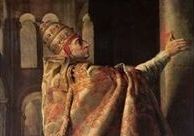
Andalusi Scholars and Pilgrims Travel Across the Mediterranean

Andalusi scholars, pilgrims, and trade goods travel across the Mediterranean, spreading Andalusi culture and ideas eastward. Guilds, investment partnerships, and banking institutions become increasingly important in Mediterranean trade. This trend is evidenced by letters of credit, court papers, and commercial documents, which were being deposited in the geniza (repository) of the Ben Ezra Synagogue in Cairo.
Ibn Tumart Spreads His Unitarian Doctrine
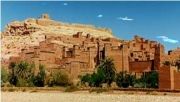
The Berber preacher, Ibn Tumart, spreads his unitarian doctrine in North Africa, creating the Almohad movement. Over the next two decades, his disciple, Abd al-Mu’min, challenges the Almoravids and extends Almohad rule as far as Egypt.
Almohads Overthrow the Almoravids
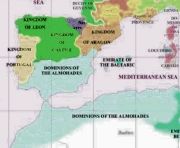
The Almohads overthrow the Almoravids by conquering Marrakesh. They institute puritanical policies throughout their domains in North Africa and Spain. Ibn Bassam — whose compendium, Al-Dhakira, is a valuable historical source — dies in Santarem. His death occurs a few years after the demise of Judah Halevi, an eminent Andalusi Jewish philosopher and poet, who left Spain for the Holy Land.
Ibn Rushd Becomes Chief Qadi
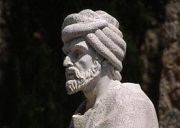
Scholar Ibn Rushd becomes chief qadi (judge) of Seville, after being introduced to the Almohad court by philosopher Ibn Tufayl. Serving in Córdoba and later in Marrakesh, he continues to practice medicine and write a range of legal, mathematical, and philosophical treatises, including important commentaries on Aristotle.
Moses Maimonides Travels To Jerusalem
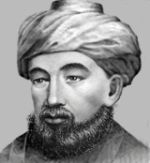
After living several years in Fes, Córdoban scholar and rabbi Moses Maimonides travels to Jerusalem. He soon becomes the court physician for the Muslim ruler, Salah al-Din (Saladin), in Cairo. Maimonides authors several major philosophical, medical, and religious texts, including the commentary Mishnah Torah and the Moreh Nevuchim (“The Guide to the Perplexed”).
Abu Yusuf Yaqub Orders the Construction of the Great Mosque of Seville
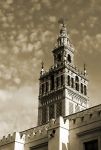
Almohad ruler Abu Yusuf Yaqub orders the construction of the Great Mosque of Seville with a 300-ft. tall minaret, now known as the Giralda, near the Alcazar palace. A few years later, the Almohads make Seville their capital. From there, they hope to restore the boundaries of Al-Andalus eroded by Christian advances. The Jewish poet, Solomon ibn Gabirol, dies a few years after.
Salah al-Din (Saladin) Reclaims Jerusalem
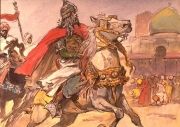
In the east, Muslim leader Salah al-Din (Saladin) reclaims Jerusalem after defeating Crusader forces at the Battle of Hattin. Andalusi scholar Ibn Jubayr describes fascinating scenes of Mediterranean life in his Rihla (“Travel Account”). He pens this piece on a Genoese ship traveling from Murcia to Alexandria en route to Mecca for the Hajj.
Almohads Defeat Alfonso VIII
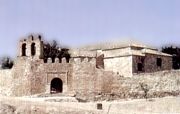
The Almohads — with the help of a Castilian cavalry faction — defeat Alfonso VIII, the King of Castile, at the Battle of Alarcos.
Rulers of Castile Defeat the Almohads
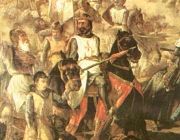
Supported by Christian military orders and crusaders, the rulers of Castile, Aragon, Navarre, and Portugal defeat the Almohads during the Battle of Las Navas de Tolosa. In the following decades, Almohad power in Spain declines, leaving Andalusi cities vulnerable to conquest. During this time, the longest lasting Muslim dynasty in Iberia, the Nasrids, rise to power in Granada, with 20 different kings ruling from 1238 to 1492.




